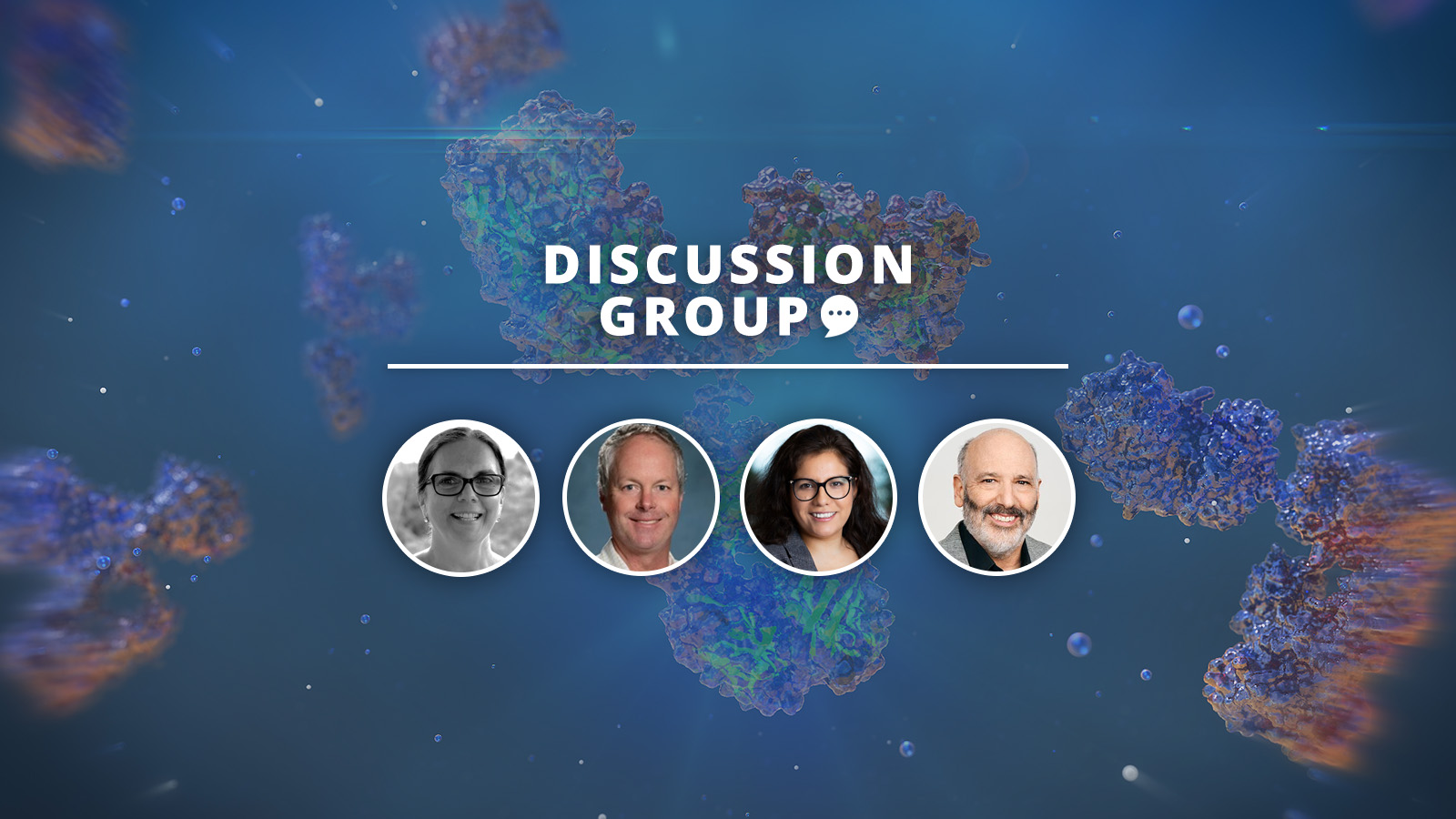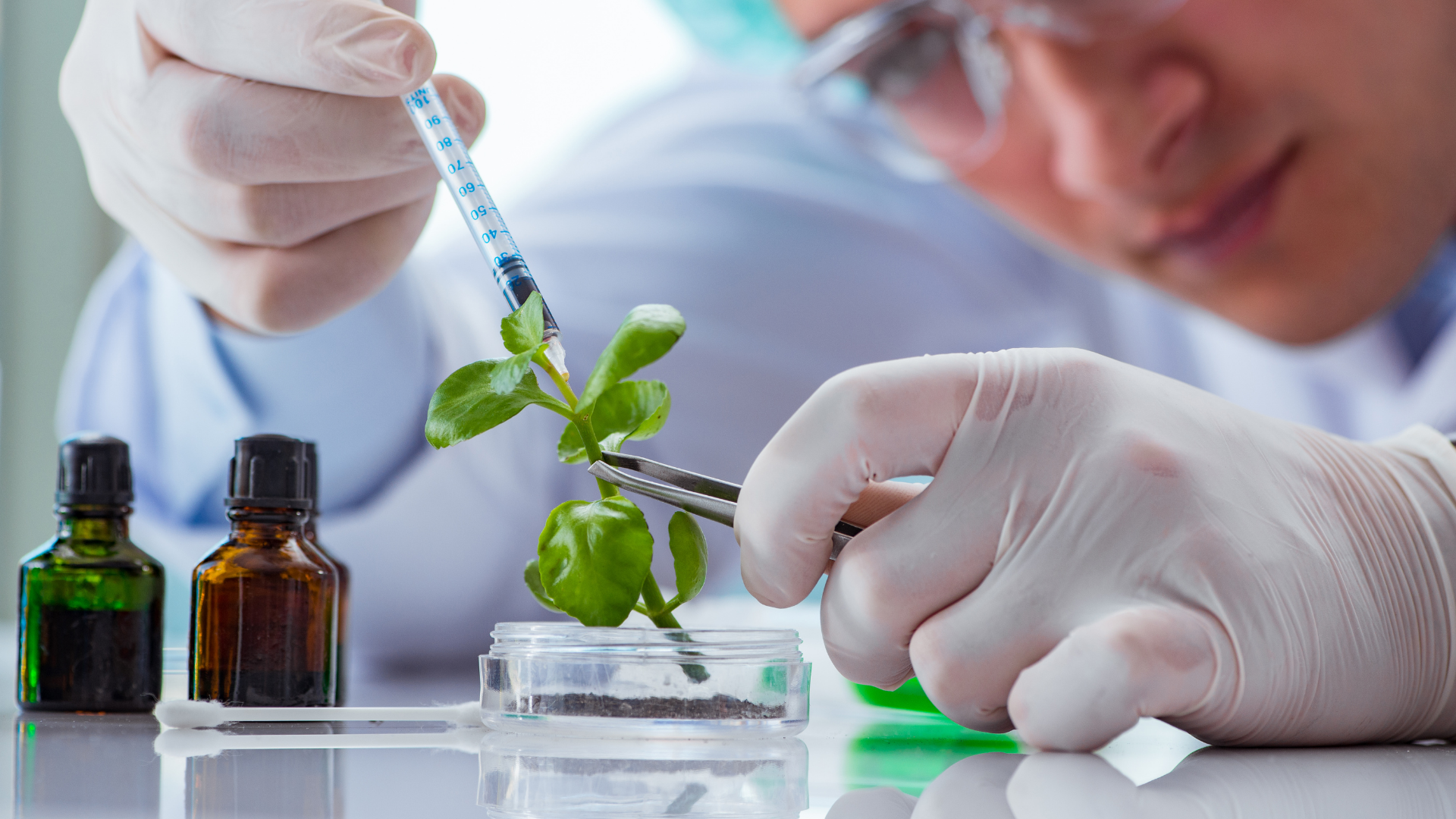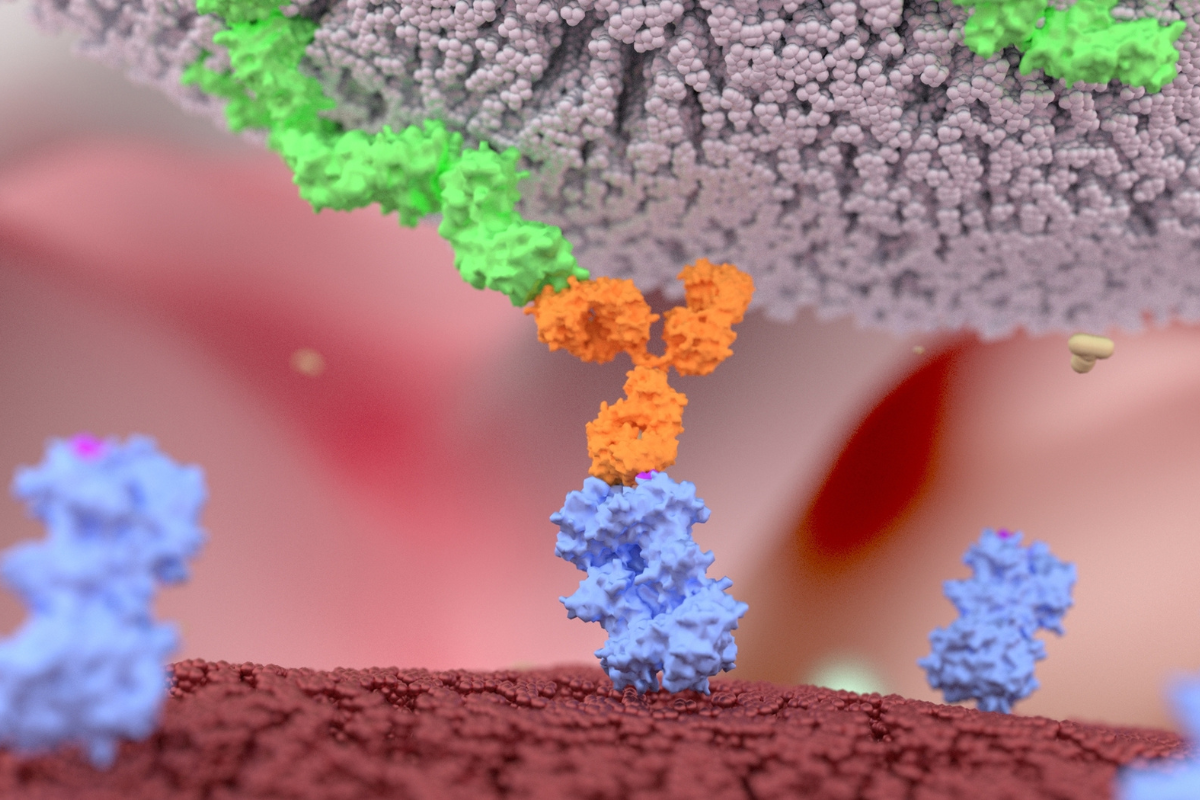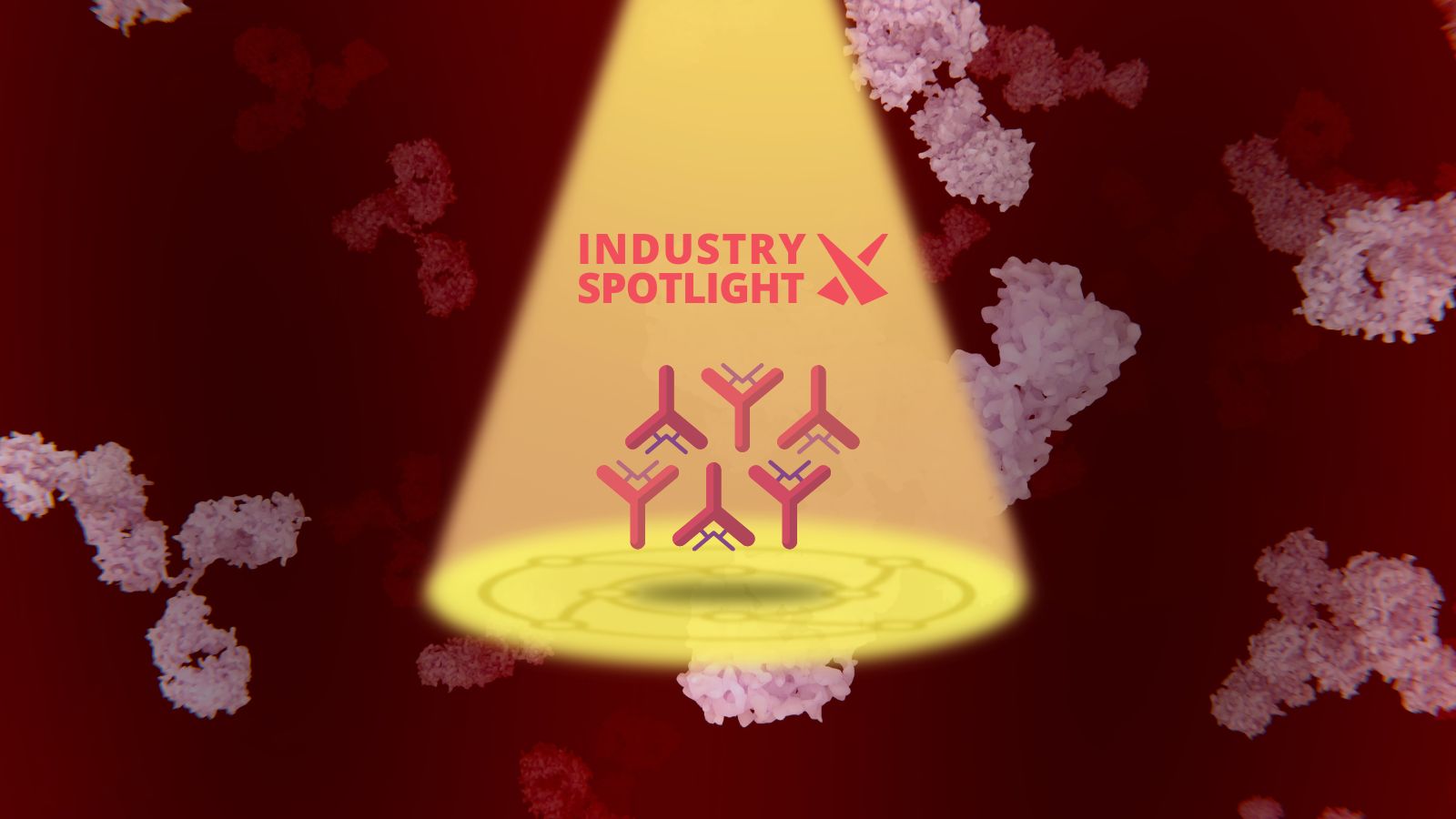Bispecific Antibodies for Solid Tumours

June’s Discussion Group came together for an hour of specialist discussion about the key strategies and available platforms for bispecific antibodies in oncology. This Discussion Group was a selection of key industry leaders from various pharmaceutical and biotechnology companies.
Laura von Schantz, Vice President of Discovery at Alligator Bioscience led the discussion. She was joined by W. Blaine Stine, Senior Director at AbbVie; Slobodanka Dina Manceva, Senior Scientist at Teva Pharmaceutical; and Jonathan Davis, Vice President of Innovation at Invenra, who were there to support.
Bispecific Antibodies – An Industry Timeline
Von Schantz opened the session with the following statement: “harnessing bispecific antibodies for solid tumour treatment is becoming a hot topic in the biologics industry.” Von Schantz proceeded to provide a brief industry timeline illustrating the recent history of the bispecific antibody. “Since the 1960s, the field has been working with bispecifics, with the innovations in engineering developments of the 1990s leading us to the vast number of formats we have available to us today.”
In 2022 alone, three bispecific have been approved by the FDA: Faricimab, tebentafusp, and mosunetuzumab. Tebentafusp is the second bispecific in the past two years to be approved for solid tumour treatment, the other being amivantamab in 2021. “We are making evident strides in the use of bispecifics to tackle solid tumours; however, there is still a way to go,” Von Schantz explained.
The investments being made in bispecific therapies is vast and continues to grow.
Currently, within the clinical and preclinical landscape, there are over 1600 compounds registered. The investments being made in bispecific therapies is vast and continues to grow. Investments in trispecifics is also notable, with 78 reported trispecifics in active development — 20 of which are in the clinical phase and 58 in the preclinical phase.
“What is interesting to note, however, are the reasons behind the discontinuation of certain bispecific antibody programs,” Von Schantz continued. Known causes include an evident lack of efficacy, strategic prioritisation, and toxicity concerns: these are all challenges which future programmes need to overcome in order to find clinical success.
Current Challenges to Bispecific Antibodies Success
According to Von Schantz, such data begs the question: “why haven’t we come further after 60 years? What are the challenges that need further unpacking in the area?” And with this, the debate began.
“Some of the biggest challenges for bispecific antibodies are simply the overall complexity of the formats out there,” Stine responded. Combinatorial problems with bi- and multi-specific present a particular problem whereby scientists are conducting forced multi-parametric optimisation. Optimising for multiple parameters often involves conflict between different property requirements. “Even with a well-behaved antibody, it’s never a slam dunk.”
- Broadening Horizons for Bispecific Effector Cell Redirection
- Harnessing Bispecific T Cell Engagers and T Cell Primers in Cancer Treatment
- Bispecific and Multi-Specific Antibodies – Formats, Applications, and Paths to the Clinic
“When you’re layering on the complexity of an engineered format, on top of that, it can become intrinsically more of a challenge,” Stine continued. Screening multiple orientations such as inner and outer domains, as well as linkers, come with factorial problems. In particular, rapid analysis of large combinatorial space is not always possible, especially with complicated multi-specific formats.
Davis concurred, saying, “to take the argument further, there is also the issue of translation where translation from models to humans gets even more difficult when using a complex system or pathway.” This bottleneck becomes abundantly clear when trying to treat cancer, where translation from mice to humans presents a precarious success tactic.
Unleashing the Next Generation of Bispecific Antibodies Formats
Conversation then turned to the optimal yield needed to manufacture the next generation of bispecific antibodies. Von Schantz advised how “it really depends on the potency of the molecule”. She continued by explaining how “at Alligator, we have the following approach: “if we can produce enough yield for phase I and phase II, then there is a cut-off.” This cut-off point, according to Von Schantz, is “preferably” two or three grammes per litre to achieve as close to a monoclonal yield as possible.
Stine agreed and attested to the benefit of leveraging a monoclonal format to achieve a streamlined pathway to the clinic. “You have to have a balance,” he confirmed. “You need to think about if you really need to use additional functionality.” This decision is especially important in oncology, where such decisions can impact the chances of treating patients earlier on in the clinical development scheme.
“The complexity of drug product development in making the molecule stable is a vital concern.”
According to Manceva, other strategies for accelerating next-generation formats will include advanced development efforts. “The complexity of drug product development in making the molecule stable is a vital concern,” she explained. In particular, analytical development and characterisation of molecules are set to become as equally important as tightening expression levels and purification.
Concluding Thoughts
The discussion concluded with Manceva aptly pointing out that “although unlocking next-generation bispecific antibodies will be challenging, the rewards will be more than worthwhile.” At Oxford Global, we couldn’t have been more pleased with the turnout for our June Biologics Discussion Group. The conversation was engaging, the debate stimulating, and the industry insights invaluable. We will continue our Discussion Group series in September with a session focusing on ‘Advanced Vaccine Platforms & Technologies’. Learn more about the Oxford Global Discussion Group series at our Biologics Portal.
Join Oxford Global’s upcoming Biologics UK: In-Person event today. This 3-day conference brings together a panel of prominent leaders and scientists, sharing new case studies, innovative data, and exciting industry outlooks.







